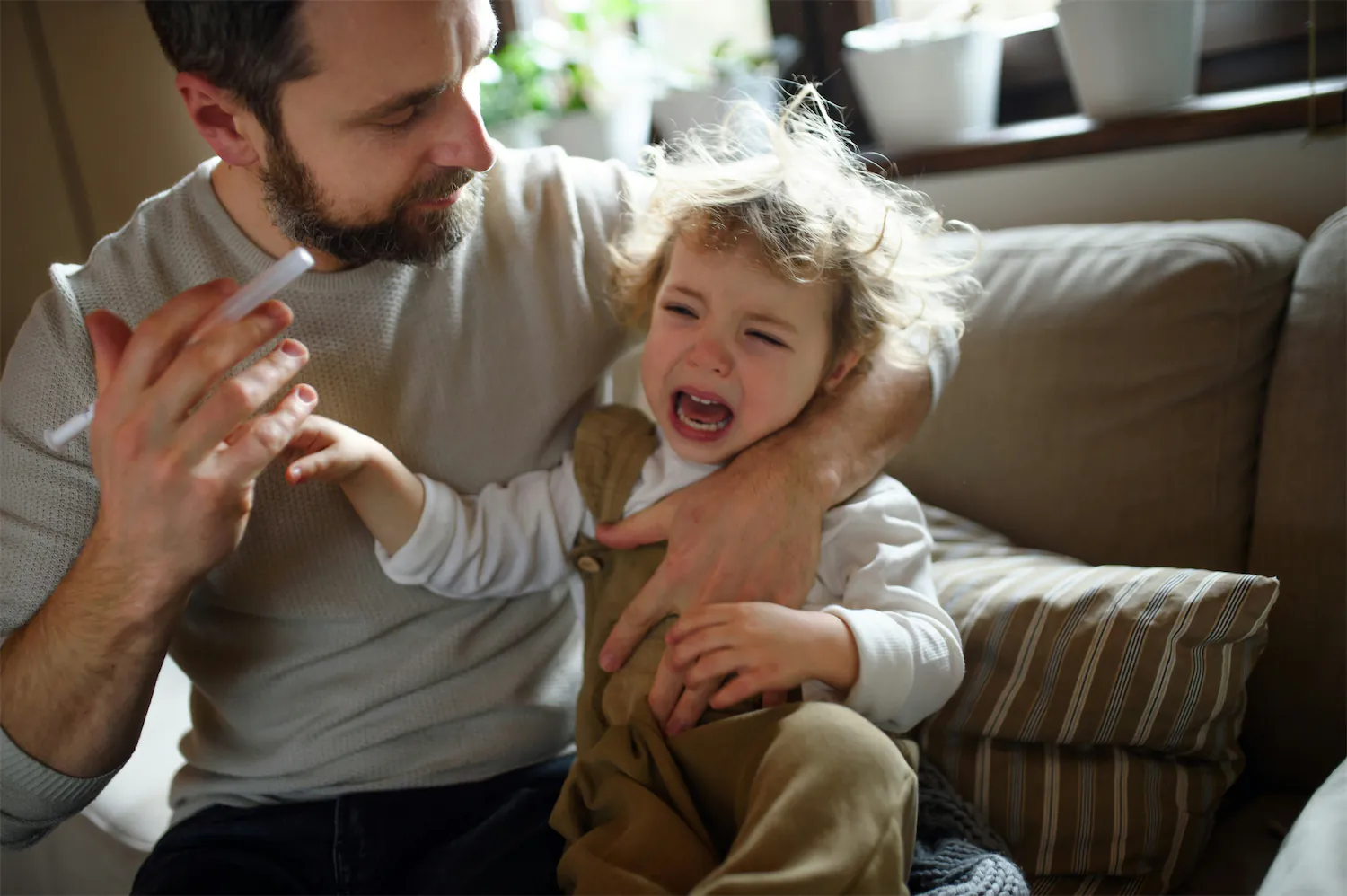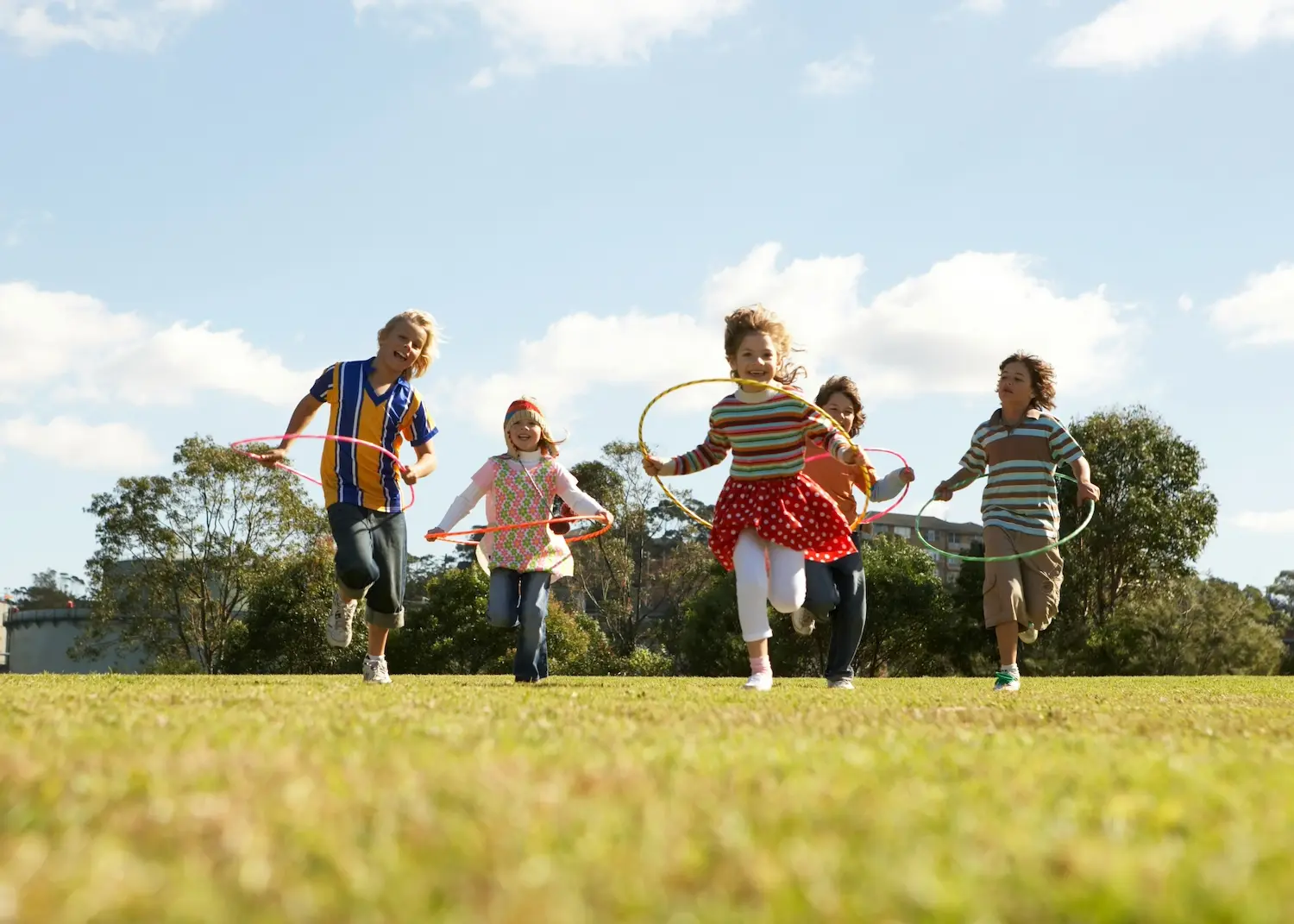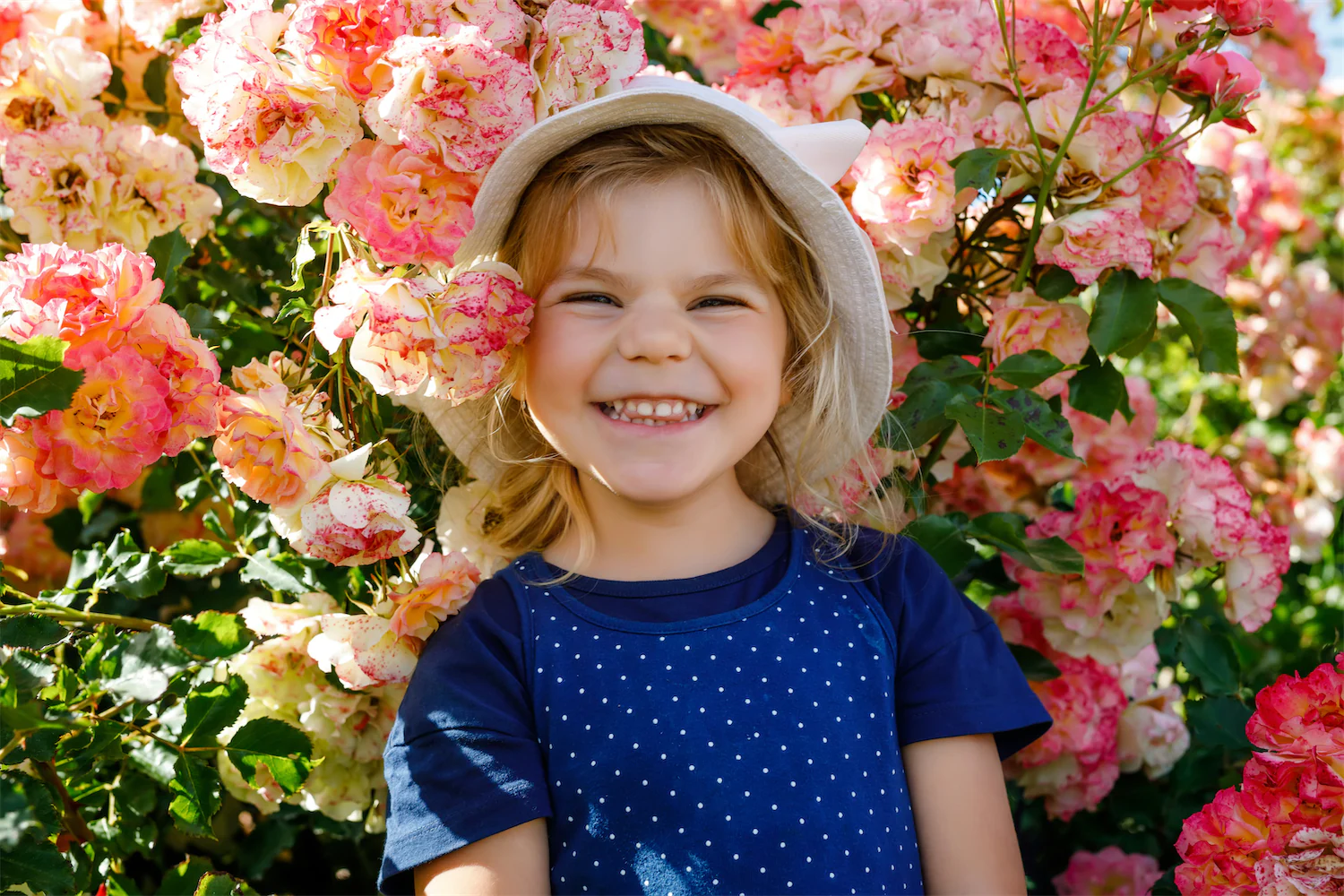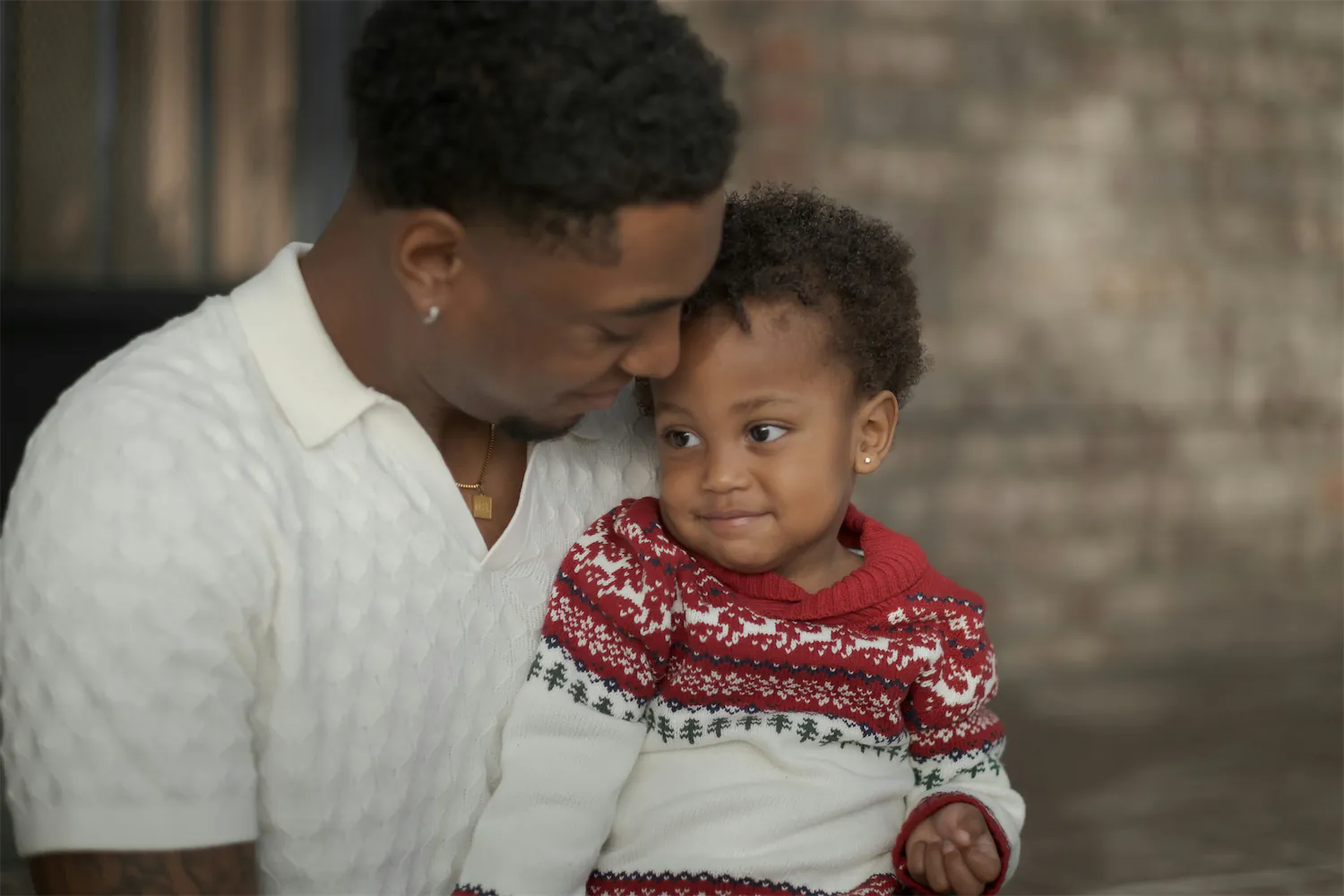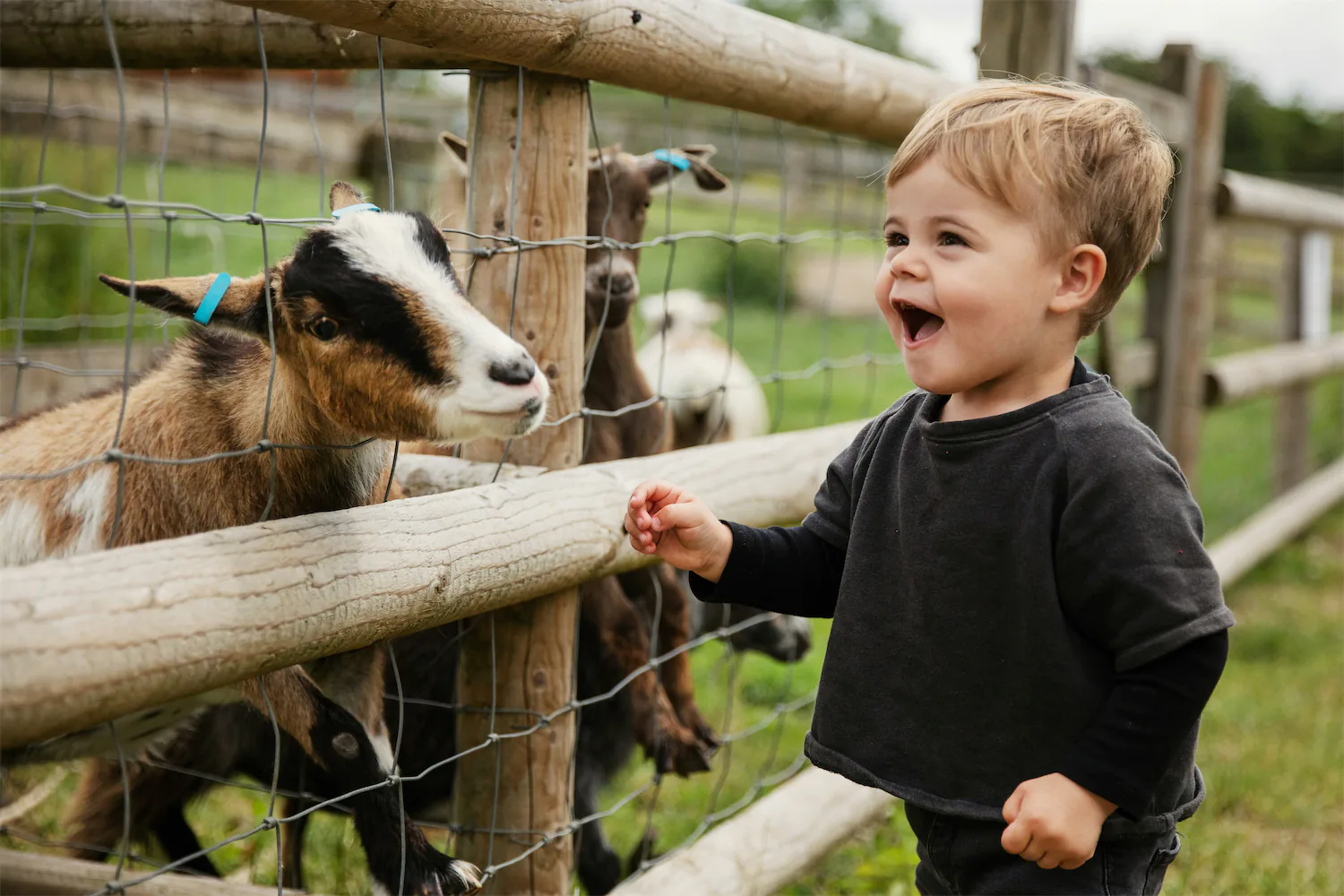Tips for toddler teeth brushing
Tips for toddler teeth brushing

Dahlia Rimmon, RDN
Content Writer

Dr. Marcy Borieux
Pediatrician



When to start brushing your child's teeth
You should start brushing your baby's teeth as soon as their first tooth appears, usually around six months. This helps keep their teeth clean and establishes healthy oral hygiene habits. Even though baby teeth aren’t permanent, they play a crucial role in your child’s overall health and development, including:
Chewing: Healthy teeth help break down food for digestion.
Oral hygiene habits: Early dental habits reinforces lifelong dental care routines.
Prevents cavities: Poor dental care can lead to tooth decay, pain, infections, and dental issues.
Placeholder for adult teeth: Baby teeth hold space for permanent teeth to grow in alignment.
Speech development: Baby teeth help in the proper formation of sounds and words by providing structure to the mouth and supporting the tongue and lips during speech.
How to pick a toothbrush
Choose a toothbrush with soft bristles, which are gentle on the teeth and gums. Look for a soft bristled toothbrush that’s easy to hold and appropriately sized for their small hands.
Start with a manual toothbrush. You can introduce an electric toothbrush for a more thorough clean once they get the hang of toothbrushing.
How often to switch toothbrushes
Toothbrushes should be switched every three to four months, or sooner if the bristles are frayed. This ensures effective cleaning and reduces the risk of bacterial contamination.
When should children begin flossing?
Children should start flossing when they have two teeth that touch, typically between 2 to 3 years. Flossing removes plaque and food particles from between the teeth where a toothbrush cannot reach.
Fluoride
Children should use toothpaste with fluoride. The American Dental Association recommends using a smear of fluoride toothpaste for children under 3 years old and a pea-sized amount for children aged 3 to 6 years. For older kids, use a normal amount of fluoride-toothpate and teach them to spit it out after brushing. Fluoride helps remineralize the teeth and prevents cavities.
Tips for toddler teeth brushing
Let your child choose their own toothbrush to give them a sense of independence and make brushing more exciting.
Try out a few different toothpaste flavors to see which one your child likes best. This makes brushing more enjoyable and the habit more sustainable.
Use a sand timer or clock to help your child brush for the recommended two minutes.
Have your child brush their teeth in front of a mirror so they can see where the toothbrush goes and practice proper technique.
Brush together to set a great example and make it a fun, shared activity.
Routine dental appointments
Children should have their first dental visit by their first birthday or within six months of the first tooth eruption. Routinedental check-ups with a pediatric dentist are recommended every six months to monitor dental development and prevent dental issues.
When to see a pediatric dentist
Schedule a visit with a pediatric dentist if your child:
Experiences ongoing tooth pain or discomfort
Shows swellings, redness, or signs of infection around loose teeth or the gums
Has a primary tooth that stays loose for an extended period without falling out or if a permanent tooth begins erupting behind it
Has signs of dental trauma that results in a loose tooth
If you have questions about teeth brushing, reach out to your local or Summer Health pediatrician for support. Summer Health is a pediatric telehealth platform offering 24/7 care, providing answers for everything from urgent concerns to everyday questions about your child’s health.
When to start brushing your child's teeth
You should start brushing your baby's teeth as soon as their first tooth appears, usually around six months. This helps keep their teeth clean and establishes healthy oral hygiene habits. Even though baby teeth aren’t permanent, they play a crucial role in your child’s overall health and development, including:
Chewing: Healthy teeth help break down food for digestion.
Oral hygiene habits: Early dental habits reinforces lifelong dental care routines.
Prevents cavities: Poor dental care can lead to tooth decay, pain, infections, and dental issues.
Placeholder for adult teeth: Baby teeth hold space for permanent teeth to grow in alignment.
Speech development: Baby teeth help in the proper formation of sounds and words by providing structure to the mouth and supporting the tongue and lips during speech.
How to pick a toothbrush
Choose a toothbrush with soft bristles, which are gentle on the teeth and gums. Look for a soft bristled toothbrush that’s easy to hold and appropriately sized for their small hands.
Start with a manual toothbrush. You can introduce an electric toothbrush for a more thorough clean once they get the hang of toothbrushing.
How often to switch toothbrushes
Toothbrushes should be switched every three to four months, or sooner if the bristles are frayed. This ensures effective cleaning and reduces the risk of bacterial contamination.
When should children begin flossing?
Children should start flossing when they have two teeth that touch, typically between 2 to 3 years. Flossing removes plaque and food particles from between the teeth where a toothbrush cannot reach.
Fluoride
Children should use toothpaste with fluoride. The American Dental Association recommends using a smear of fluoride toothpaste for children under 3 years old and a pea-sized amount for children aged 3 to 6 years. For older kids, use a normal amount of fluoride-toothpate and teach them to spit it out after brushing. Fluoride helps remineralize the teeth and prevents cavities.
Tips for toddler teeth brushing
Let your child choose their own toothbrush to give them a sense of independence and make brushing more exciting.
Try out a few different toothpaste flavors to see which one your child likes best. This makes brushing more enjoyable and the habit more sustainable.
Use a sand timer or clock to help your child brush for the recommended two minutes.
Have your child brush their teeth in front of a mirror so they can see where the toothbrush goes and practice proper technique.
Brush together to set a great example and make it a fun, shared activity.
Routine dental appointments
Children should have their first dental visit by their first birthday or within six months of the first tooth eruption. Routinedental check-ups with a pediatric dentist are recommended every six months to monitor dental development and prevent dental issues.
When to see a pediatric dentist
Schedule a visit with a pediatric dentist if your child:
Experiences ongoing tooth pain or discomfort
Shows swellings, redness, or signs of infection around loose teeth or the gums
Has a primary tooth that stays loose for an extended period without falling out or if a permanent tooth begins erupting behind it
Has signs of dental trauma that results in a loose tooth
If you have questions about teeth brushing, reach out to your local or Summer Health pediatrician for support. Summer Health is a pediatric telehealth platform offering 24/7 care, providing answers for everything from urgent concerns to everyday questions about your child’s health.
References
American Dental Association: Fluoride toothpaste use for young children
American Dental Association: Fluoride toothpaste use for young children
American Dental Association: Fluoride toothpaste use for young children
Summer Health offers fast and reliable pediatric urgent care through online doctors, all via text. Whether you’re worried about your baby's fever, rashes, or other children's health concerns, we provide expert advice and support anytime, right from your phone.

Never miss a post!
Sign up for our newsletter to receive articles and guides directly to your inbox!
